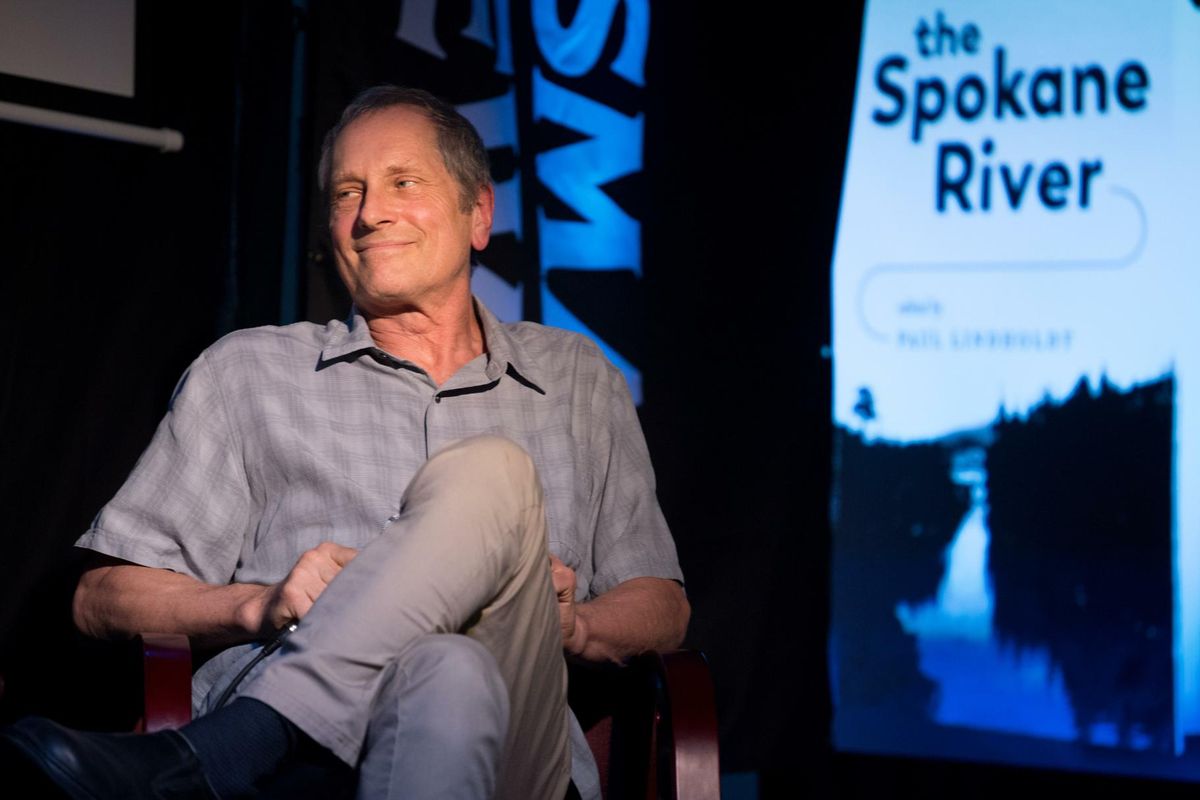Locally Writ: EWU professor Paul Lindholdt’s poetry collection ‘Makes Landfall’ tells stories of early Americans

Despite a career largely spent writing nonfiction and creative nonfiction, EWU English professor Paul Lindholdt has always had a desire to write a collection of poetry.
During his college years, Lindholdt worked under Pulitzer Prize-winning author Annie Dillard.
“She really lit me up,” Lindholdt said, explaining Dillard’s lesser-known affinity to poetry. “Still today, many, many years later, I’m lit up by her example, her personality and above all her writings.”
While Lindholdt would ultimately work toward a Ph.D. in literature and go on to win a Washington State Book Award in 2011 for his memoir “In Earshot of Water,” his early love for poetry and creative writing never quite left him as he audited writing classes, wrote steadily, won an Academy of American Poets Prize and published poetry all through those years.
“It’s something that’s deep inside me,” he said, half-joking about the dozens of poems he has memorized over the years. “They almost memorize themselves; I didn’t really have to work at it.”
Lindholdt’s new collection, “Making Landfall,” draws all the way back to his dissertation research into early American literature.
“When I finished that degree – finished writing that dissertation – I was just filled with the voices of these colonists from the 17th and 18th centuries, and they just started spilling out as poetry,” he said. “It was very organic.”
Taking inspiration from the poetry of Emily Dickinson and John Donne, “Making Landfall” is a collection of monologues in one sense or another. They are largely dramatic. Many are written as companion pieces to other poems in an “interlocutory” or conversational style.
The title of the work, “Making Landfall,” has a double meaning. “From the point of landfall, the land began to fall,” he said. In other words, it refers literally to the arrival of colonists while highlighting the gradual “fall” of the land itself, that is, the decline of environmental integrity, another subject close to Lindholdt’s heart.
The collection is a chronological review of early American culture beginning with immigration and sea voyages, moving on to settlement and the gradual subjugation of Native Americans and ending with the decline of the Puritan culture that dominated early American anglo-literature.
Lindholdt hopes the collection will convey “the multiplicity” of early American culture beyond the traditional, monolithic conception of its Puritanism.
While the Native American tradition of oral versus written history somewhat limited their contributions to early American literature, he explained, “it would be a glaring glitch to overlook the Native American presence in early American culture.”
He also emphasizes the role of the Spanish as well as some of the more “irreligious types” that clashed with the dominant Puritan culture.
“That’s what I hope that readers will take away,” he said. “That there were a lot of people who were wanting to have their freedom, whatever kind of freedom that was.”
Writing “Traveler to the Colonies,” the first poem in the book, he knew immediately on the strength of that first voice that a whole collection would follow. The voices of each of the subsequent poems radiated out from the first in the form of what he imagines as “satellite voices,” he said. From there, “It was just a matter of listening intently enough to heed them.”
And then the editing began.
“The revision process is like an iceberg,” he said. “That’s what surprised me, just how labor-intensive it was. The art of poetry is so exacting.”
To aspiring authors, Lindholdt offers a few pieces of advice.
“First, don’t wait for the breath of God to inspire you. Second, revise, revise, revise. Although it’s really time-intensive, the pleasure (of writing) comes in the revision.”
Third, he emphasizes the importance of listening.
“Very often, writers do not spend enough time listening to the language’s music. But, if we don’t hear the poems aloud, we’re missing a huge portion of the delight of poetry. There has to be that oral dimension.”